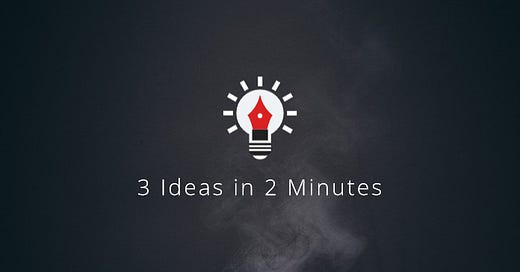#173: Ostrich Effect, Preference Falsification & Knowing the Difference
3 Ideas in 2 Minutes on Handling the Truth
I. Ostrich Effect
Ostriches don’t really bury their head in the sand when they sense danger. Still, this myth is the origin of the Ostrich Effect, our tendency to avoid negative or uncomfortable information...such as the fact that Ostriches don’t really bury their heads in the sand whenever they sense danger.
Other examples of the cognitive bias include: Avoiding feedback you know will stress you out. Not checking your credit card bills fearing it might be lower than expected. Ignoring your little kid’s upcoming birthday in the hopes that you can avoid hosting two dozen little monsters in your home.
Needless to say, burying your head in metaphorical sand is counterproductive. Every parent knows that if you cover your eyes, people can still see you. Similarly, ignoring a problem doesn’t make it go away. The only thing it does is postpone a solution.
II. Preference Falsification
Personally, I enjoy workplace socialisation very much. There’s nothing better than hanging out with all your coworkers for a drink or five after you’ve spent the whole day with them in the office. It’s the single best thing since LinkedIn.
On an entirely unrelated note, let’s talk about Preference Falsification. This phenomenon occurs when we express opinions or beliefs that differ from our true preferences to conform to social norms, avoid conflict or gain acceptance. We hide our true beliefs in favour of what is perceived as socially acceptable or desirable.
People may publicly endorse ideas or behaviours they secretly despise, either because they fear social repercussions or because they believe their true preferences are in the minority. In other words, we lie about what we like. The concept is similar to the Abilene Paradox, which happens when a group acts against its members‘ preferences even though everyone secretly agrees on how wrong a decision is.
III. Knowing the Difference
Sometimes we may want the truth. But can we handle it? American theologian Reinhold Niebuhr is attributed with the following rather Stoic plea:
Grant me the serenity to accept the things I cannot change, the courage to change the things I can and the wisdom to know the difference.
—Reinhold Niebuhr
🐘
Have a great week,
Chris
themindcollection.com



